

Atul Grover, MD, PhD, (AΩA, George Washington University, 1995), AΩA Board President and AΩA Executive Committee Chair, began his service on the AΩA Board in 2017 as the Medical Organization Director.
Dr. Grover, is the inaugural executive director of the AAMC Research and Action Institute. The Institute convenes national experts to examine the most critical issues affecting the missions and institutions of academic medicine; develop policy and programmatic solutions; and harness member medical schools, teaching hospitals and academic health systems, and academic societies to test, validate, and scale effective change.
Dr. Grover is an internal medicine physician, health services researcher, and nationally recognized expert in health policy. Dr. Grover joined the AAMC as the associate director for the Center for Workforce Studies in 2005, where he managed research activity and directed externally funded workforce studies. He became a director of government relations and health care affairs in 2007 and served as the association’s chief public policy officer from 2011 to 2016. From 2016 to 2020, he served as executive vice president, where he provided strategic leadership in the areas of medical education, academic affairs, health care affairs, scientific affairs, learning and leadership programming, diversity and inclusion, public policy, and communications.
Previously, Dr. Grover held positions in health care finance and applied economics consulting and worked with the U.S. Public Health Service, Health Resources and Service Administration National Center for Health Workforce Analysis.
Dr. Grover earned his medical degree from the George Washington University School of Medicine and Health Sciences (GW SMHS) and his doctorate in health and public policy from Johns Hopkins University (JHU) Bloomberg School of Public Health. Dr. Grover holds faculty appointments at GW SHMS and JHU Bloomberg School of Public Health.
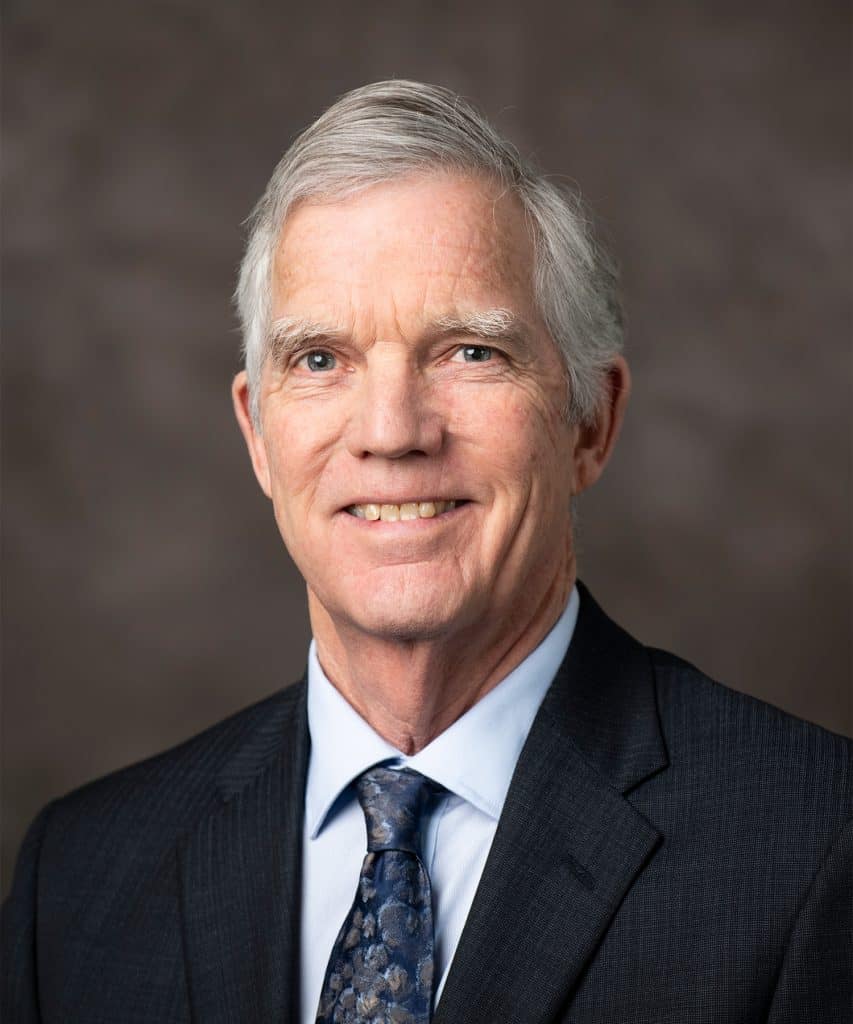
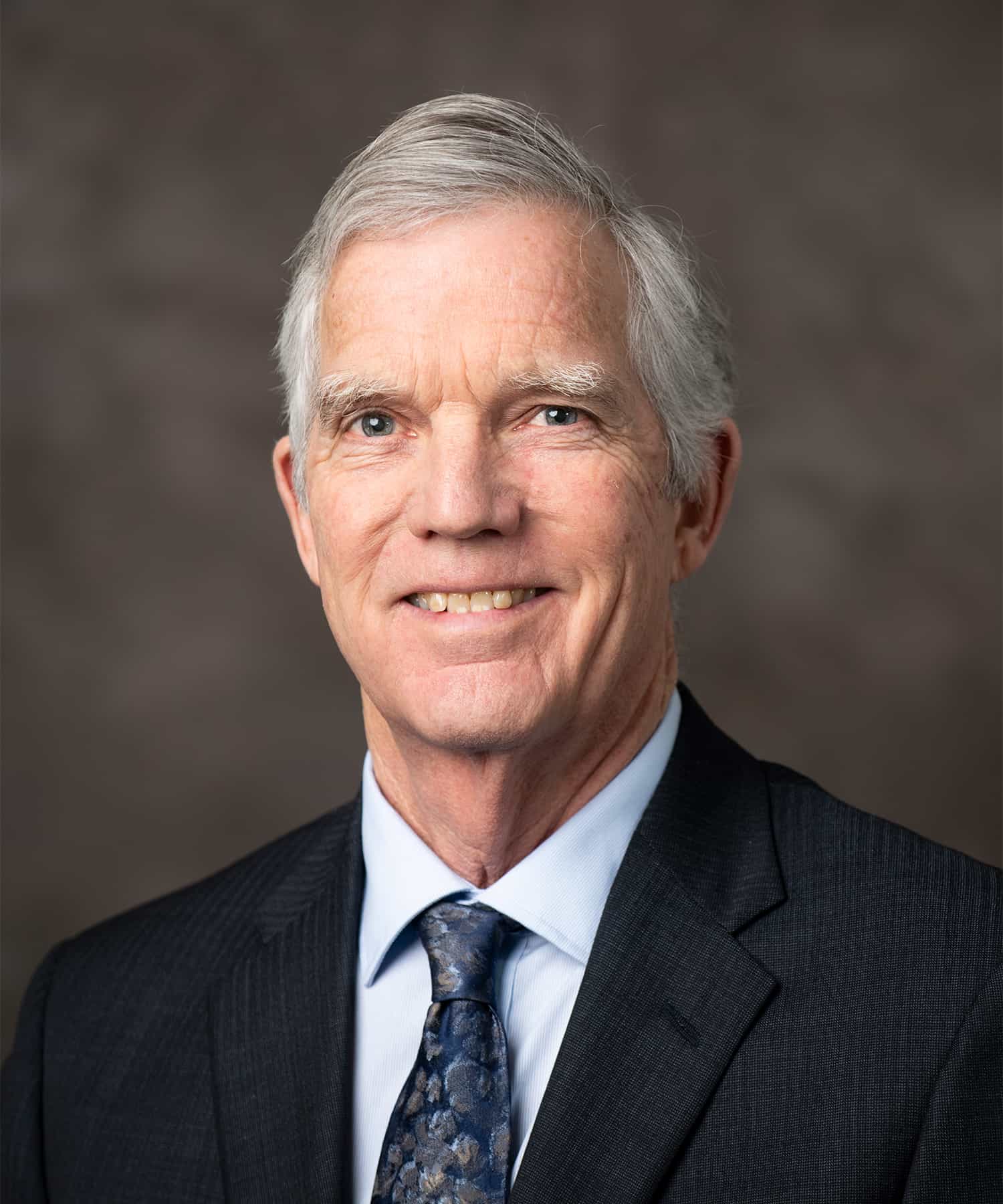
Peter W. Bates, MD, joined the Tufts University School of Medicine (TUSM) community in 2008 as founding academic dean for Maine Medical Center’s Maine Track Program with the School of Medicine. He concurrently served as senior vice president of academic affairs and chief academic officer at Maine Medical Center, where prior to that he was chief medical officer and chair of Medicine. In July 2019 Dr. Bates assumed the role of vice dean at Tufts School of Medicine and served as dean ad interim from January 1, 2020, through June 30, 2021.
As academic dean, Dean Bates oversaw the implementation of a unique and transformative academic partnership between the School of Medicine, Maine Medical Center, the State of Maine, and Maine community healthcare organizations. The Maine Track curriculum combines clinical and pre-clinical experiences throughout Maine with training at a major tertiary medical center. The program exposes medical students to the advantages of rural practice with the larger goals of addressing Maine’s physician workforce shortage and providing affordable access to high-quality medical education for Maine applicants. The Maine Track has graduated over 350 physicians since its launch in 2009, nearly fifty percent are practicing in Maine following clinical training.
As interim dean, Dr. Bates and the TUSM leadership team led the school through the COVID-19 pandemic, developing innovative and effective educational experiences that protected patients, students, and faculty. Dean Bates and TUSM also implemented a new strategic plan that committed the school to becoming an anti-racist medical school with a renewed focus on the health of its communities. The plan involved important structural and cultural changes in support of its vision.
Dr. Bates has served in several leadership roles at Maine Medical Center and the Tufts University School of Medicine. In 2017, he received the medical school’s Distinguished Faculty Award. He has been a member of several regional and national specialty and academic organizations, including their boards of directors. Bates received both his BS and MD from the University of Washington, where he completed his internal medicine internship and residency, serving as chief resident. He completed his pulmonary and critical care fellowship at UWSOM and Maine Medical Center.

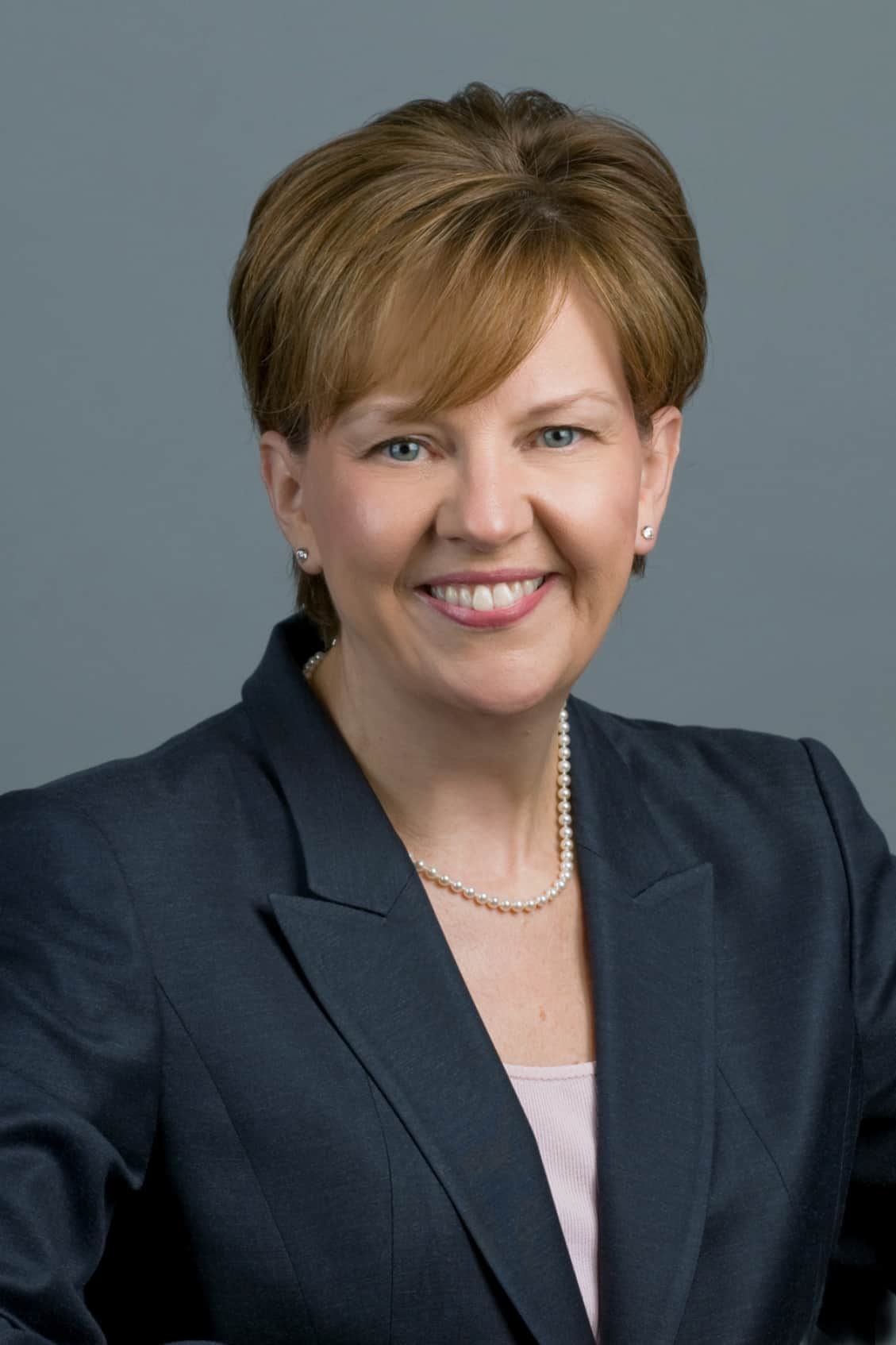
Dr. Holly J. Humphrey, MD, MACP, (AOA, University of Chicago, 1983) became the eighth president of the Josiah Macy Jr. Foundation—the only national foundation dedicated solely to improving the education of health professionals—in July 2018. Previously, she served for 15 years as the Ralph W. Gerard Professor in Medicine and Dean for Medical Education at The University of Chicago. Dr. Humphrey earned her MD degree with honors from The University of Chicago and as a member of Alpha Omega Alpha honor society. Following an internal medicine residency, pulmonary and critical care fellowship, and Chief Residency, all in the department of medicine at The University of Chicago, she served for 14 years as Director of the Internal Medicine Residency Program, which provided the foundation for her medical education career. Her signature programs in medical education have focused on diversity and inclusion, mentoring, and professional identity formation. She is an elected member of the National Academy of Medicine, a Master of the American College of Physicians, and a Fellow of the Royal College of Physicians (London). Crain’s Chicago Business featured her as one of their “Women to Watch,” and the NorthShore University HealthSystem created the Holly J. Humphrey Medical Education Fund with a one-million-dollar gift to The University of Chicago. Her teaching honors include selection as a favorite faculty teacher by graduating University of Chicago Pritzker School of Medicine students more than 25 times.


Dr. Lynne Kirk (AΩA, University of Nebraska Medical Center College of Medicine, 1977) served the Accreditation Council for Graduate Medical Education (ACGME) as its first Chief Accreditation Officer. She led ACGME’s Review and Recognition Committee, which evaluates residency and fellowship programs. She also managed the development, revision, and dissemination of national accreditation standards for residency programs, directed accreditation process improvements, and advised the committees to ensure fair evaluation of programs. Dr. Kirk retired in 2024.
Additionally, Dr. Kirk is Professor Emeritus of Internal Medicine and Family and Community Medicine at University of Texas Southwestern. A UT Southwestern faculty member for 30 years, Dr. Kirk has served as Director of the Student Health Service, Associate Dean for Medical Education and Graduate Medical Education, and Associate Chief of the Division of General Internal Medicine. Her research focused on clinical prevention, geriatrics, and medical education.
Dr. Kirk, also a Distinguished Teaching Professor, has published on professionalism and competency-based medical education, focusing on the best ways to train physicians at all levels of medical education – medical school, residency/fellowship, and the continuum of medical education.
In addition to supervising students, residents, and fellows, Dr. Kirk has cared for patients as a board-certified general internal medicine and geriatric physician. She practiced in the Acute Care for the Elderly Unit at William P. Clements Jr. University Hospital and at Parkland Memorial Hospital’s Center for Internal Medicine and its resident continuity clinic (in which residents take care of a panel of patients in the outpatient setting over their entire residency).
Dr. Kirk was President of the American College of Physicians, the national specialty organization for internists, in 2006-2007. She has published on medical professionalism, faculty development, clinical guidelines, and patient education. She chaired the Internal Medicine Residency Review Committee of the ACGME and served as an Associate Program Director in the Internal Medicine Residency Training Program at UT Southwestern.
In 2015, she received the Texas Medical Association Platinum Award, the top honor for its Excellence in Academic Medicine program. The multilevel award program honors academic physicians who are consummate teachers, role models, and medical professionals.
Dr. Kirk received her medical degree from the University of Nebraska School of Medicine in 1977, then completed an internship and residency at Boston University School of Medicine.
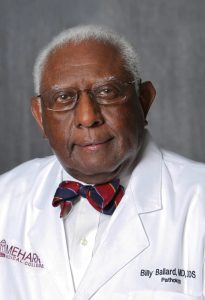
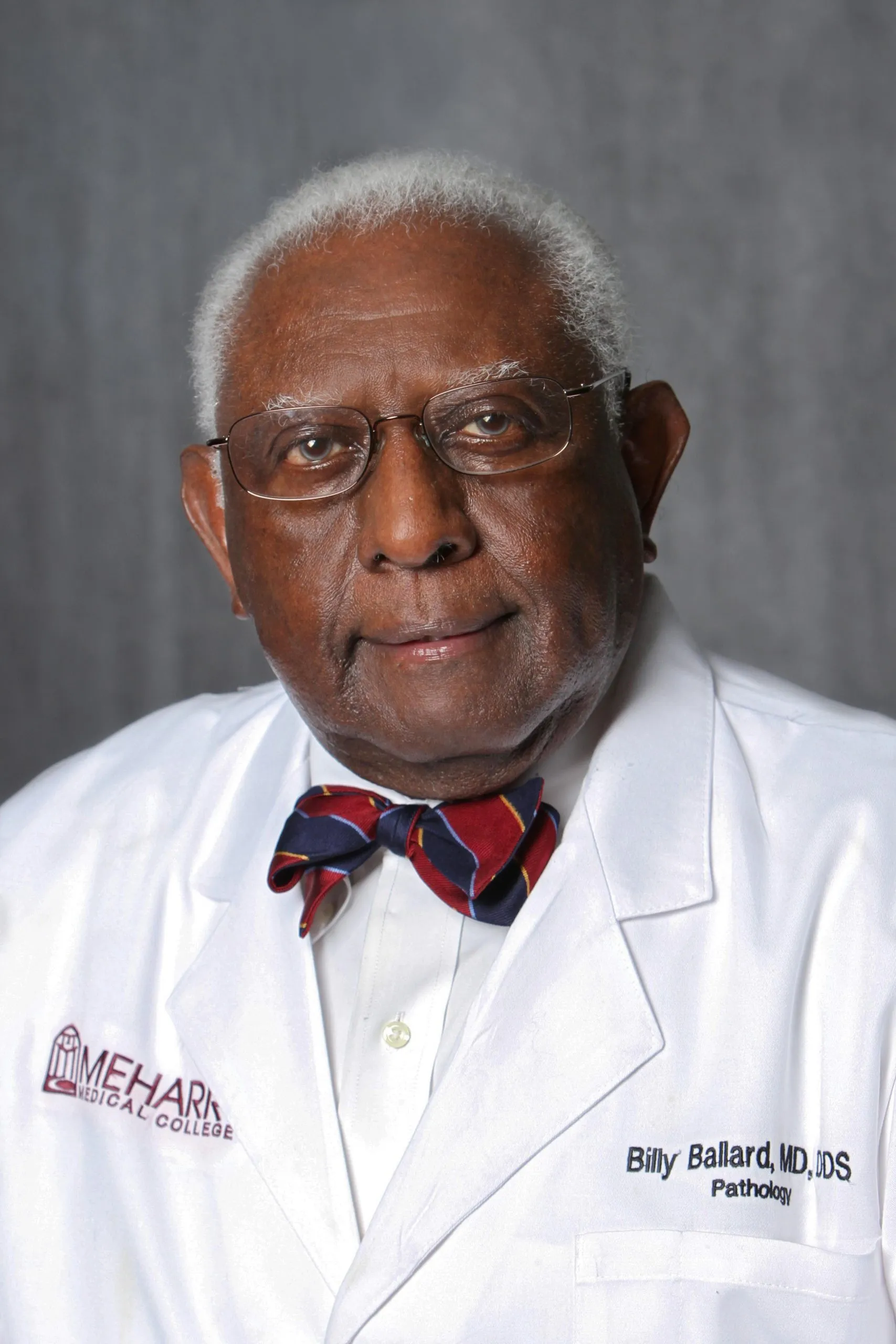
Dr. Billy Ballard is a Professor and Chair of the Department of Pathology, Anatomy, and Cell Biology and Associate Dean for Continuing Medical Education at Meharry Medical College.
With a career spanning nearly 50 years, Dr. Ballard is a well-respected pathologist with more than 120 publications, and he has been a pioneering force who has opened many doors for African American students, residents and faculty.
He earned a B.S. degree from Southern University in Louisiana before studying at Meharry Medical College where he completed both the Doctor of Dental Surgery degree and the Doctor of Medicine degree.
Dr. Ballard began his academic career with dual appointments as Assistant Professor of Pathology and Oral Pathology at the State University of New York at Buffalo. He has been a tenured professor since 1971. Dr. Ballard’s faculty appointments, with tenure, continued at Meharry Medical College, the University of Mississippi Medical Center, and the University of Texas Medical Branch at Galveston.
Since 1982, continuous funding has been awarded from HRSA for Dr. Ballard’s grant proposals at research institutions. These programs include: Health Careers Opportunity Program, Post Baccalaureate Program, Hispanic Center of Excellence, and Historical Black Colleges and Universities Center of Excellence. In 2005, the HRSA Bureau of Health Professions honored Dr. Ballard with the Associate Administrator Achievement Award, in recognition of his outstanding leadership and achievement in improving the diversity of the nation’s health workforce.
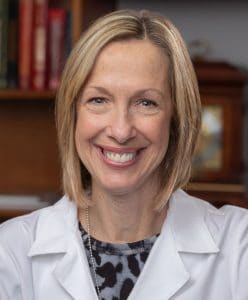
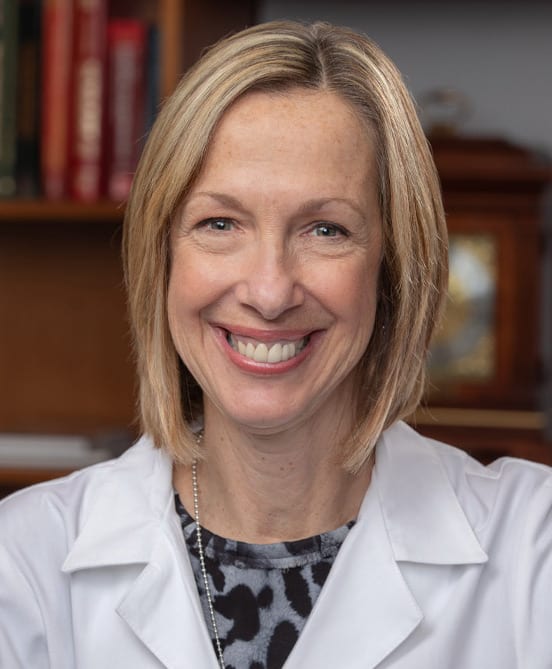
Dean, The Ohio State University College of Medicine
Vice President for Health Sciences, The Ohio State University Wexner Medical Center
An internationally recognized head and neck cancer researcher, surgeon and leader in academic medicine, Carol R. Bradford, MD, MS, FACS, became the dean of The Ohio State University College of Medicine and vice president for Health Sciences at The Ohio State University Wexner Medical Center in 2020. She is also the Leslie H. and Abigail S. Wexner Dean’s Chair in Medicine and a professor of Otolaryngology – Head and Neck Surgery.
Dr. Bradford earned her master’s degree in microbiology/immunology and her medical degree (cum laude) at the University of Michigan. She completed a general surgery internship at Saint Joseph Mercy Hospital and research fellowship and otolaryngology – head and neck surgery residency at the University of Michigan before joining its faculty in 1992. She became department chair in 2009 and executive vice dean for academic affairs in 2016. From 2012 – 2018, she held the Charles J. Krause, MD, Collegiate Professorship in Otolaryngology.
Dr. Bradford specializes in head and neck cancer surgery, focusing her research on identifying and evaluating biomarkers that can predict outcomes. She works to develop therapies to combat certain types of head and neck cancer that are resistant to traditional forms of treatment. She also pioneered the use of sentinel lymph node biopsy as a safe and reliable tool to stage patients with melanoma of the head and neck. She has published more than 300 peer-reviewed articles and contributed to more than 20 book chapters.
Her many awards include a Distinguished Service Award from the American Academy of Otolaryngology-Head and Neck Surgery (AAO-HNS) in 2007, a Clinical Excellence Award from Castle Connolly National Physician of the Year Awards in 2009 and the AAO-HNS Women in Otolaryngology Helen F. Krause, MD, Memorial Trailblazer Award in 2019. Dr. Bradford was elected as the first woman president of the American Head and Neck Society in 2012 and received that organization’s Distinguished Service Award in 2015. That same year, she was inducted into the prestigious National Academy of Medicine.
In 2020, she became the president of the AAO-HNS for a one-year term. She previously served on the board of directors of this organization from 2014 – 2018. She also served as president of the Society of University Otolaryngologists in 2017. She is a fellow of the American College of Surgeons, American Head and Neck Society, Triological Society and American Laryngological Association.
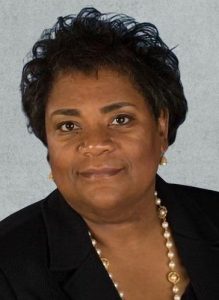
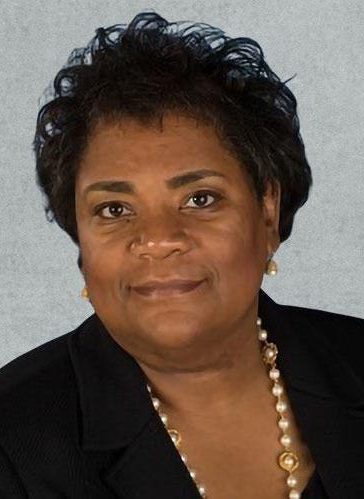
Carmen Renée Green, MD, was appointed Dean of the CUNY School of Medicine on October 4, 2021. An immediate priority was getting CUNY Medicine fully accredited by the Liaison Committee on Medical Education (LCME). The School had been on provisional-probationary status; with Dean Green’s leadership, it earned a full five-year accreditation—the longest timeframe possible for a first attempt.
Located in Harlem, CUNY Medicine is home to an accelerated 7-year BS/MD and one of the nation’s oldest public Physician Assistant programs. The School has a holistic admissions process and has never used the MCAT. In October 2023, Dean Green successfully petitioned the CUNY Board of Trustees to expand the School’s offerings to include a traditional four-year MD—the first step in a long-term strategic growth plan.
Dr. Green recruited an executive leadership team to spur innovation, expansion, and address the social determinants of medical education. She hired additional academic and career advisors, created the Bridge to Clerkship to prepare students for the USMLE, and added a mandatory Pre-Matriculation Program that gets incoming undergraduates involved with community-based and biomedical research before their first semester. To improve recruitment and success for Black male students in particular—a population that makes up less than 3% of doctors today—the School’s Brothers, M.D., Initiative, was strengthened to offer mentoring, tutoring, and guidance from the start of college and beyond graduation. Curricular innovations include a new 3D Virtual Anatomy Lab and a re-engineered Objective Structured Clinical Examination.
Dean Green is a widely cited scholar and academic medicine physician in anesthesiology, pain management, and disparities in pain treatment and healthcare. She is a Professor Emerita in Anesthesiology and OB/GYN and academic leader from the University of Michigan School of Medicine. Dr. Green earned her MD from Michigan State University College of Human Medicine and was elected to Alpha Omega Alpha National Honor Medical Society. She holds a BS in Biology from the University of Michigan-Flint.
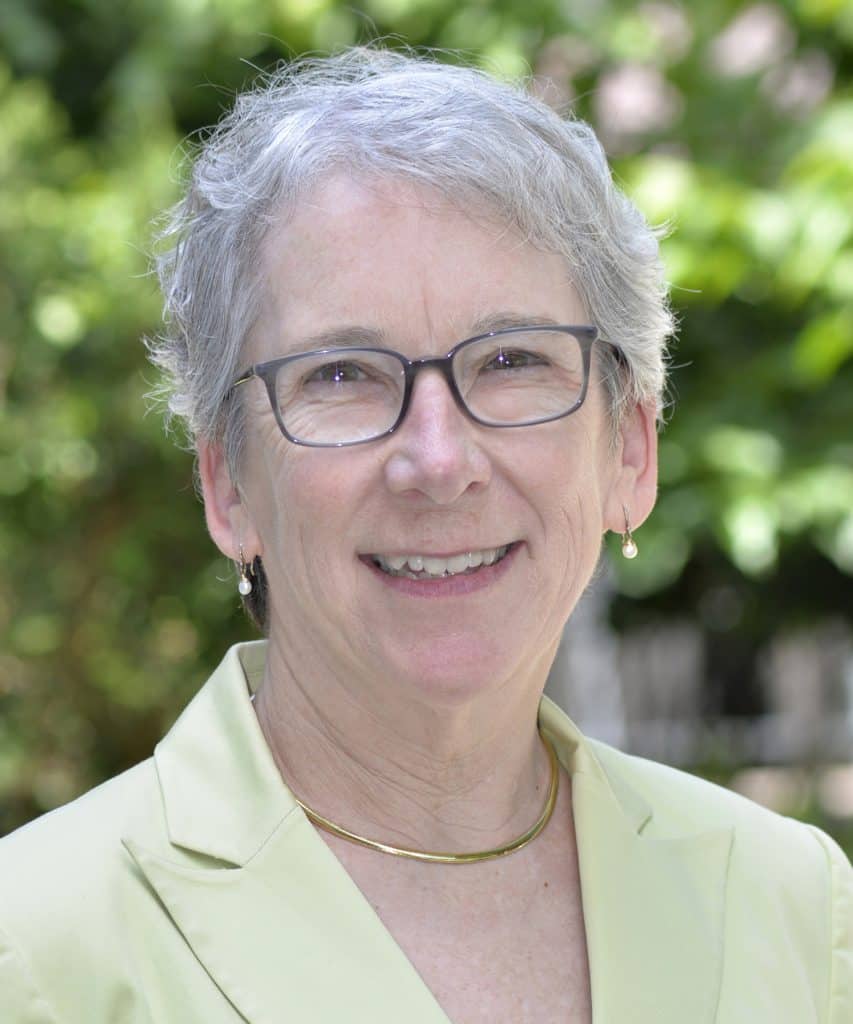
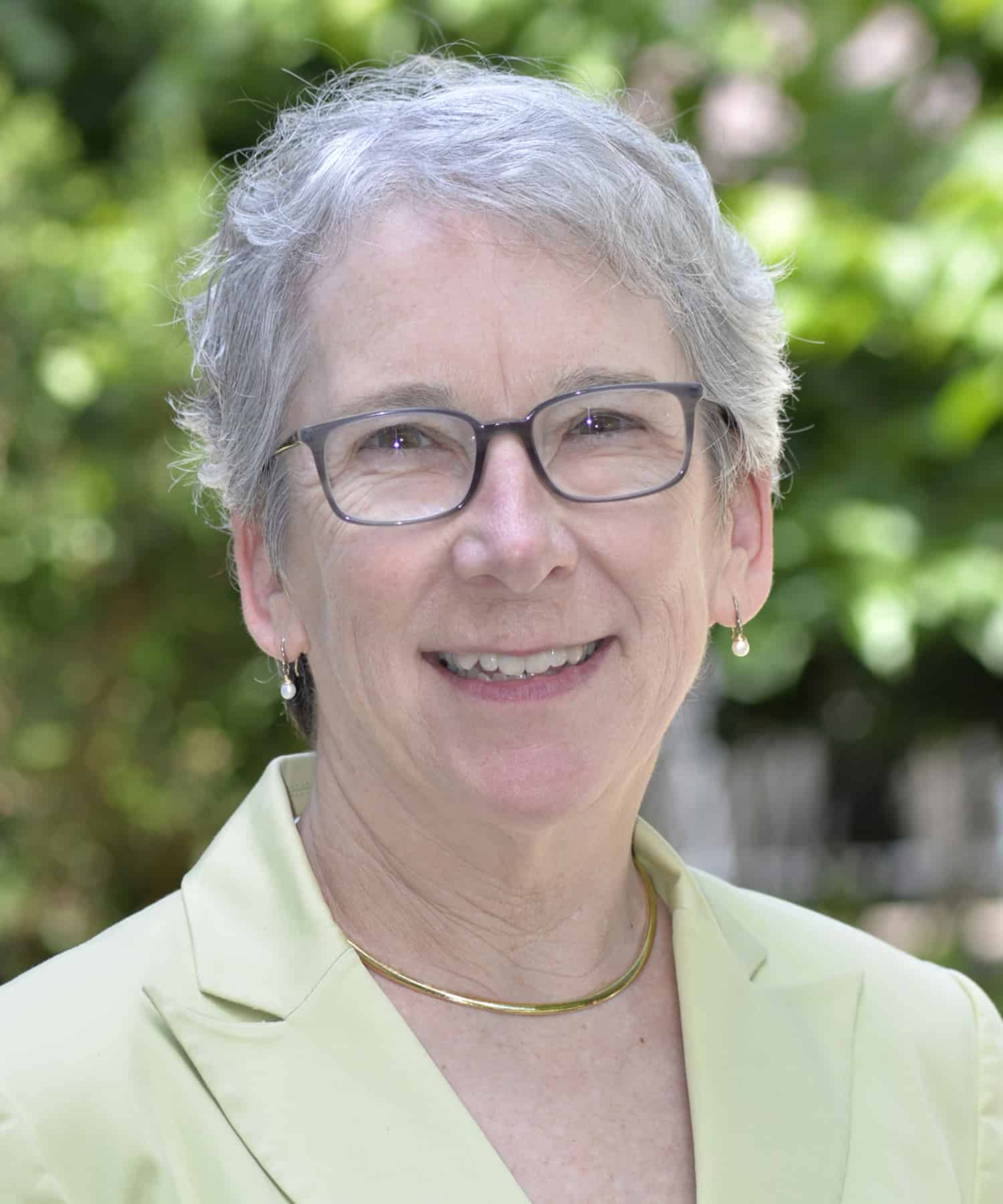
Dr. Cleary (AOA, Ohio State University, 1978) is Professor of Medicine and Distinguished Teaching Professor at the State University of New York (SUNY), and serves as Vice President for Academic Affairs at Upstate Medical University in Syracuse, New York. Dr. Cleary is councilor of the Upstate AOA Chapter, serves on the Editorial Board of The Pharos, previously served as Board President, a Councilor Board member of AOA and has chaired an AOA Councilor Task Force. She is a clinician and educator and has received teaching awards at Upstate and nationally, most recently the AAMC/AOA Robert J. Glaser Distinguished Teacher Award in 2017. She is a lifetime honorary member of the National Board of Medical Examiners (NBME), served on the Executive Board from 2009-2017, and chaired a Transprofessional Task Force in 2017. She is active in the American College of Physicians, recently completed service as Governor of the Upstate Region of the New York Chapter, and currently serves as a member of the ACP’s Master Clinician Task Force.
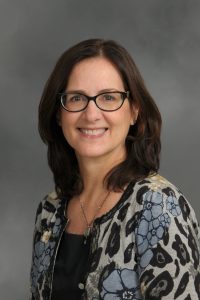
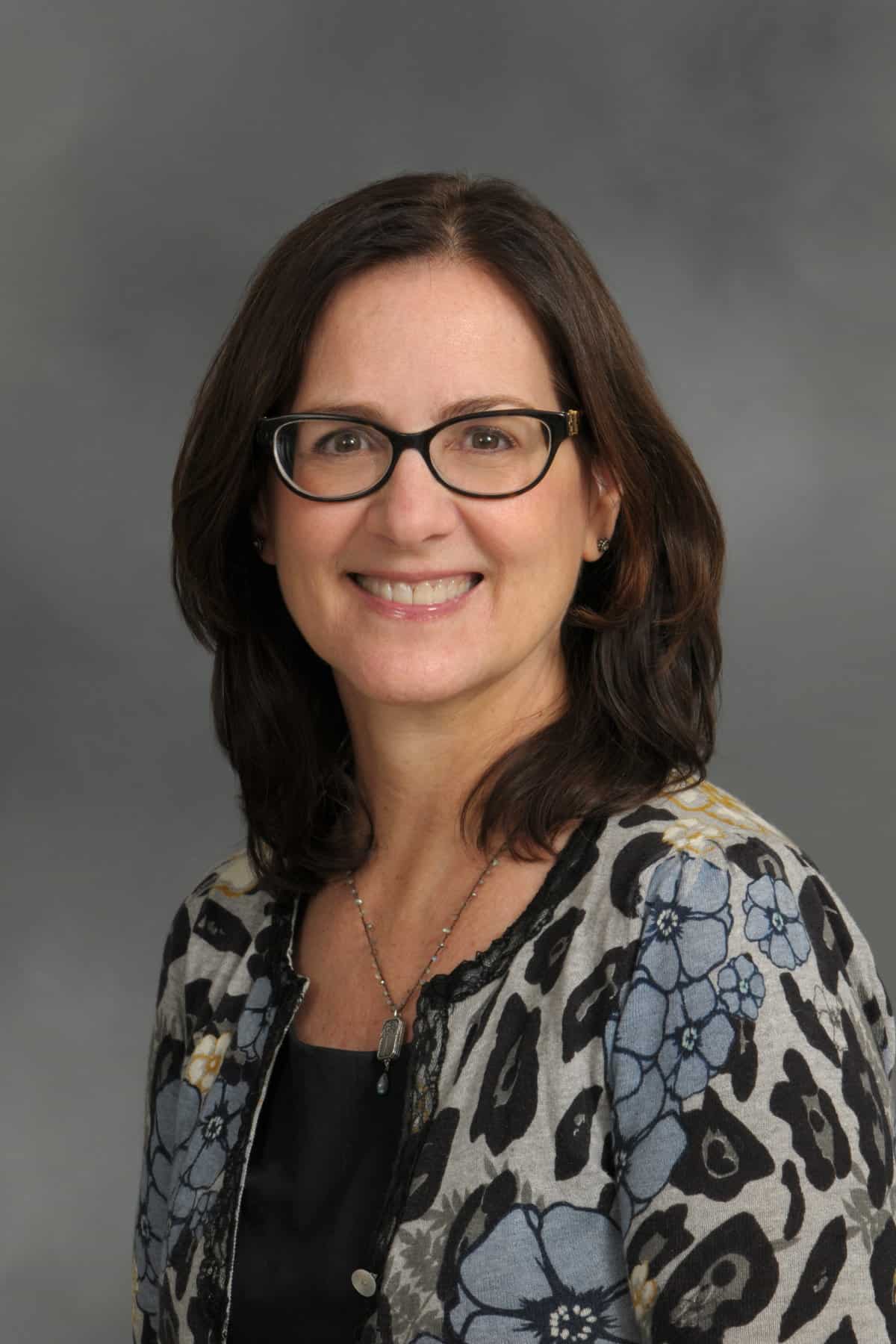
Susan W. Lane, MD, FACP is Professor of Medicine at the Renaissance School of Medicine at Stony Brook where she serves as the Internal Medicine Residency Program Director and Vice Chair for Education in the Department of Medicine. Dr. Lane received her B.A. from Amherst College, her M.D. from the University of Connecticut, and completed her Internal Medicine Residency Training at Strong Memorial Hospital, University of Rochester.
Dr. Lane is board certified in Internal Medicine and has been practicing general internal medicine since 1996, the last 20 years at the Renaissance School of Medicine at Stony Brook.
Dr. Lane’s interests include graduate medical education, physician communication, and health policy. Dr. Lane currently serves as Past-President of the Association of Program Directors in Internal Medicine (APDIM), and the AAIM (Alliance for Academic Medicine) liaison to the ACP Health and Public Policy Committee. Dr. Lane is a member of the Board of Directors for the Alliance for Academic Internal Medicine (AAIM) and the Alpha Omega Alpha (AOA) Honor Society.
Dr. Lane has won numerous teaching awards including the Aesculapius Award for Excellence in Medical Education and is a graduate of the Alpha Omega Alpha Honor Society Fellowship in Leadership.


Dr. Sharon Lewis, (AΩA, University of Miami, 2005), is a Professor of Neurology at Cooper Medical School of Rowan University. She specializes in general neurology and neuromuscular medicine. She completed her neurology residency and neuromuscular fellowship at the University of Pennsylvania in 2010. Throughout her career, she has pursued her passion for mentoring and teaching which is inclusive of supporting students who are underrepresented in medicine. With the knowledge of the leaky pipeline for students pursuing STEM based and healthcare fields, Dr. Lewis began teaching in the Penn Educational Pipeline Program (EPP) as a resident and eventually became the program director. The EPP provides a multi-tiered mentorship and educational opportunity which teaches health care concepts and self-efficacy to local West Philadelphia high school students. She also served as the Assistant Dean for Diversity Recruitment in the Inclusion, Diversity, Equity and Learner Experience (IDEAL Med) Program at the Perelman School of Medicine. In this role, Dr. Lewis was the faculty advisor for several healthcare pathway programs which impact high school to undergraduate students from underrepresented groups in medicine. Due to these endeavors, Dr. Lewis has been recognized with several awards for clinical excellence as well as teaching and mentorship. These include the Penn Pearls teaching award, Penn Med Minority Hall of Fame for Commitment to Underrepresented Minorities, the Neurology Resident’s Award for Excellence in Teaching, the Dean's Award for Excellence in Clinical Teaching (at an Affiliated Hospital), and was inducted into the Academy of Master Clinicians at the University of Pennsylvania
Dr. Lewis graduated from the University of Miami in Coral Gables, FL with a B.S., cum laude, in Biology and a minor in chemistry and psychology. She earned her M.D. at the University of Miami Miller School of Medicine.

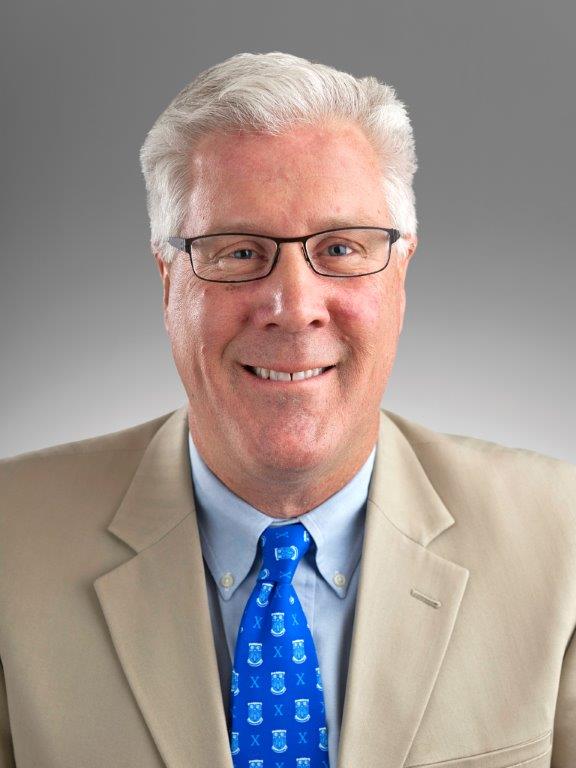
Cornelius "Mac" Dyke, M.D. (AΩA, Virginia Commonwealth University School of Medicine, Resident, 1993)
Dr. Dyke is an assistant professor of surgery at the University of North Dakota (UND) and an attending cardiothoracic surgeon for Sanford Health in Fargo. He is a native of Baltimore, Maryland, received his undergraduate degree from Duke University, Trinity College. He earned his medical doctorate from Duke University School of Medicine, where he was elected to membership in Alpha Omega Alpha. He completed his surgery residency at the Medical College of Virginia in Richmond, where he served as chief resident and became a Fellow in Cardiothoracic Surgery.
Dr. Dyke was awarded the 43rd Evarts Graham Fellowship by the American Association for Thoracic Surgery for study at Harefield Hospital, London, England.
Since 2012, Dyke has practiced with Sanford Health and has been an assistant professor of surgery at UNDSMHS. Before joining Sanford and UND, he practiced with SouthEast Texas Cardiovascular Surgery Associates in Houston. Dyke is a Diplomate of the American Board of Surgery and the American Board of Thoracic Surgery.
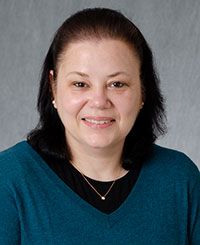

Dr. Angelike Liappis, MD is an Associate Professor at the Veterans Affairs Medical Center in Washington. Dr. Angelike Liappis is a graduate of the George Washington University School of Medicine and Health Sciences and completed her residency in internal medicine and fellowship in infectious diseases at GW. After completing the fellowship, Dr. Liappis joined the GW Medical Faculty Associates, Division of Infectious Diseases. Dr. Liappis holds the rank of associate professor with appointments in the Department of Medicine and the Department of Microbiology, Immunology and Tropical Medicine at GW, and is a fellow of the Infectious Diseases Society of America.
Dr. Angelike P. Liappis (AΩA, George Washington University School of Medicine and Health Sciences, Resident, 1999) serves as the medical director for the Washington, DC Veterans Affairs Medical Center Antimicrobial Stewardship Program and directs the Antimicrobial Stewardship Elective for GW internal medicine residents. Dr. Liappis serves on several university committees and is the faculty mentor for the GW Medical Student ID Interest Group (IDIG). She serves as the Co-Councilor for the GW Alpha Washington DC Chapter of the Alpha Omega Alpha Medical Honor Society.
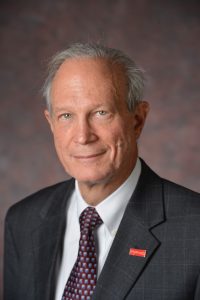
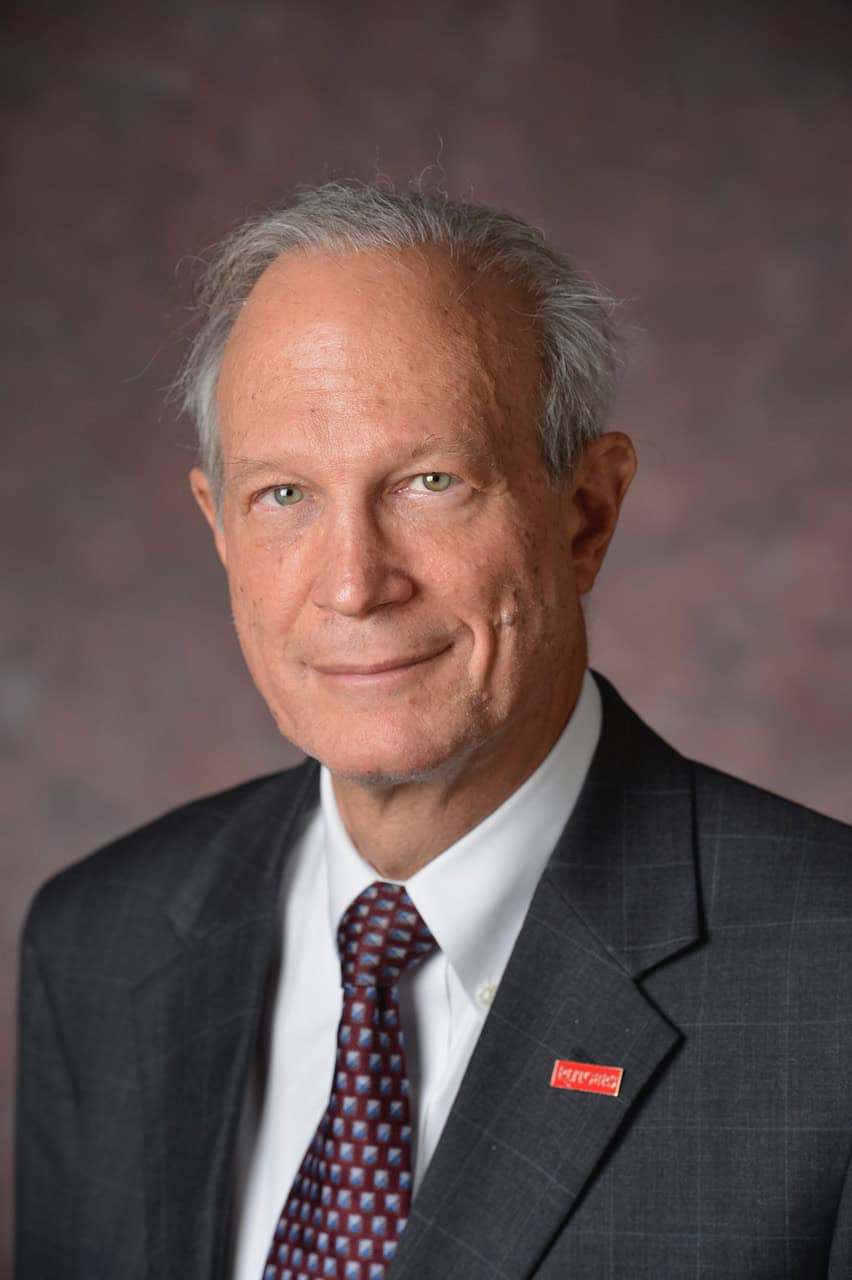
Robert A. Schwartz, MD, MPH, (AΩA, New York Medical College, 1974) is the Professor and Head of Dermatology at the Rutgers New Jersey Medical School, a position he assumed in 1983. Prof. Schwartz has served four terms on the Rutgers University Board of Trustees and is Chair of the Academic Standards, Regulations, and Admissions Committee. He has been a Member of the U.S. Presidential Advisory Council on HIV/AIDS, heading its international portion.
He is an authority on global health, cutaneous oncology, HIV/AIDS, and paraneoplastic syndromes. At UCSF in 1981, Prof. Schwartz led one of the three groups that first described AIDS-associated Kaposi sarcoma. He contributed extensively to the understanding of cutaneous markers of internal malignancy, including with the first description of florid cutaneous papillomatosis.
Prof. Schwartz is an International Regional Advisor for the Royal College of Physicians (Edinburgh), Vice President of the International Society of Dermatology, and the Chief Editor of the journal Dermatologic Therapy. He has written over 1000 publications, including the widely acclaimed book Skin Cancer: Recognition and Management.
Prof. Schwartz’s research and scholarship have yielded numerous academic recognitions, including election as a Member of Academia Europaea (MAE) and to honorary memberships in more than twenty national medical and specialty organizations, most recently as an Honorary Fellow of the Colleges of Medicine of South Africa.
Prof. Schwartz holds a BA in Political Science from the University of California, Berkeley and a MPH from the UC Berkeley School of Public Health. He then earned a MD from the New York Medical College, where he was inducted into Alpha Omega Alpha. He completed postdoctoral training at the University of Cincinnati and at the Roswell Park Cancer Institute.
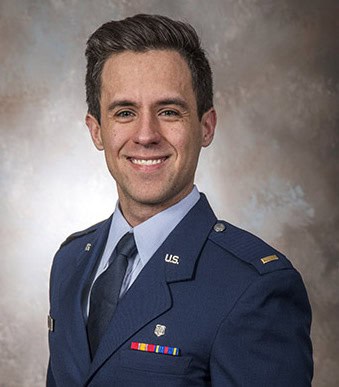

William Brooks (AΩA, Uniformed Services University School of Medicine, 2025) joined the AΩA board of directors as Student Director in 2024 with an additional assignment to the Professionalism Committee. He will be completing a residency in Family Medicine, with hopes to continue on in a Hospice/Palliative Care fellowship.


Jabre Millon (AΩA, Kerkorian School of Medicine at UNLV, 2022) joined the AΩA Board of Directors as a Student Director in 2022. He is a resident physician in Interventional Radiology at Oregon Health & Science University. He received is BA in biology from the University of Southern California in 2015.
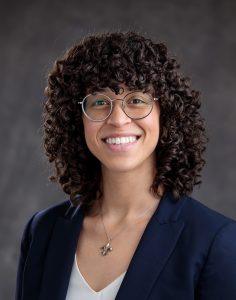
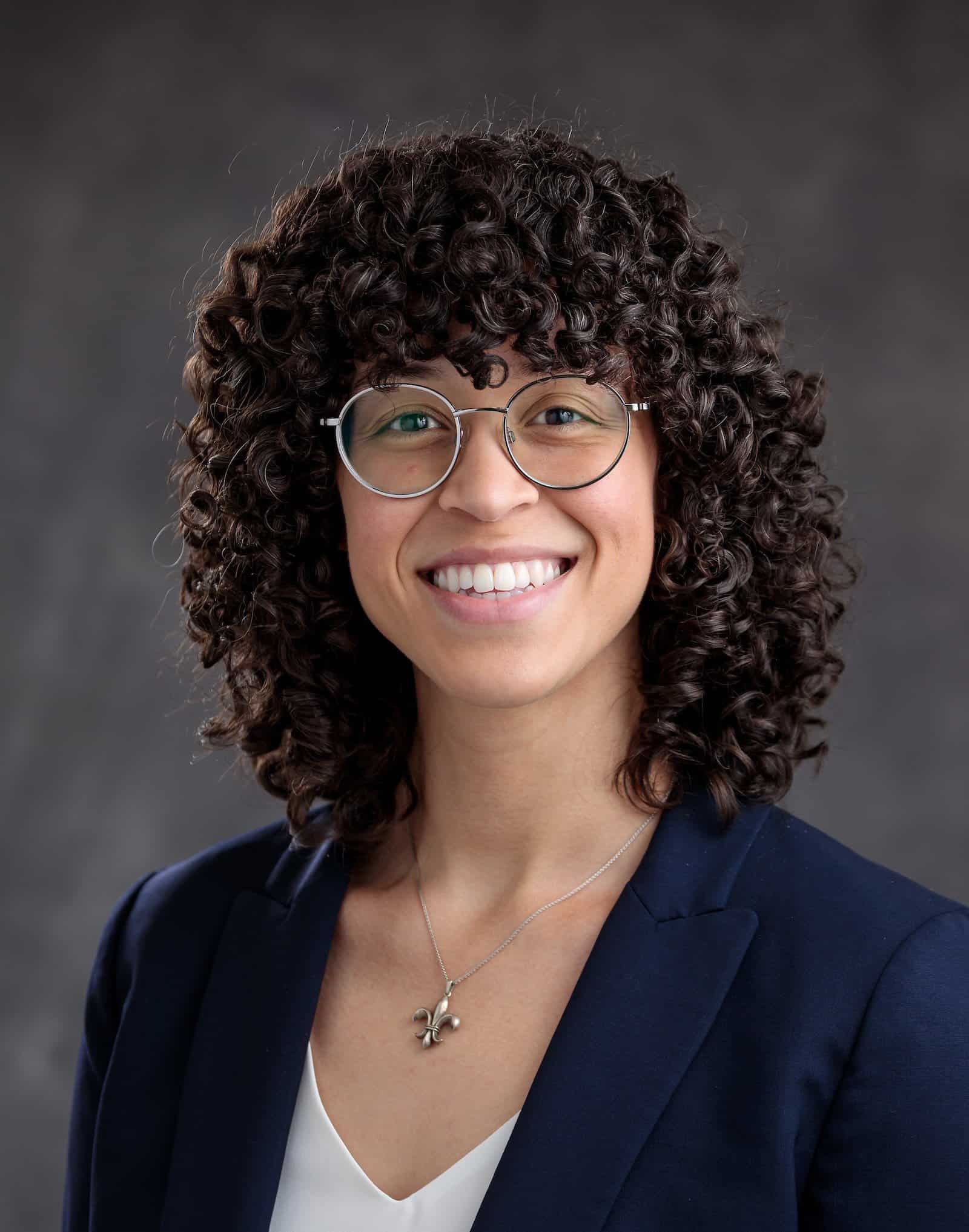
Samantha Morris (AΩA, University of Chicago, Pritzker School of Medicine, 2024) joined the AOA Board of Directors as a Student Director from the University of Chicago, Pritzker School of Medicine in October 2023. She is currently a PGY1 at Henry Ford Health, Family Medicine Residency.
A New Orleans native who studied Latin as an undergraduate at Tulane University, Morris has distinguished herself at Pritzker as a leader and advocate. She has served as a board member of OUTPatient, the Student National Medical Association (SNMA), Maria Shelter Medical Clinic, and the Chicagoland Free Clinics Consortium.
With OUTPatient, Morris successfully led an effort to establish the group as an official chapter of the national Medical Student Pride Alliance. She also helped establish a medical student volunteer program with Howard Brown Health, a federally-qualified health center serving LGBTQ+ communities. Morris’s advocacy within the LGBTQ+ community on the South Side of Chicago has included a hygiene product drive in support of Brave Space Alliance, which prominently serves Black and Trans community members. At Pritzker, she developed an LGBTQ-inclusive sexual history taking guide for use in the Clinical Skills course.
As Mentorship Liaison with SNMA, Morris launched a mentorship program connecting pre-clinical medical students with graduating students in their specialties of interest, and she personally continues to mentor multiple undergraduate students pursuing careers in medicine. Morris has also advocated for medical students with disabilities, co-authoring a guide to accessing disability accommodations during undergraduate medical education for the national Medical Students with Disability and Chronic Illness (MSDCI) organization.
Morris, who last year was named to the Tulane University Newcomb Institute’s 30 Under 30 list, is pursuing a career in family medicine.
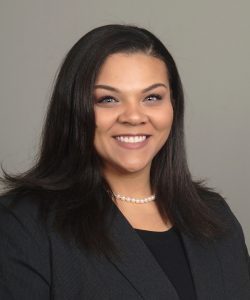
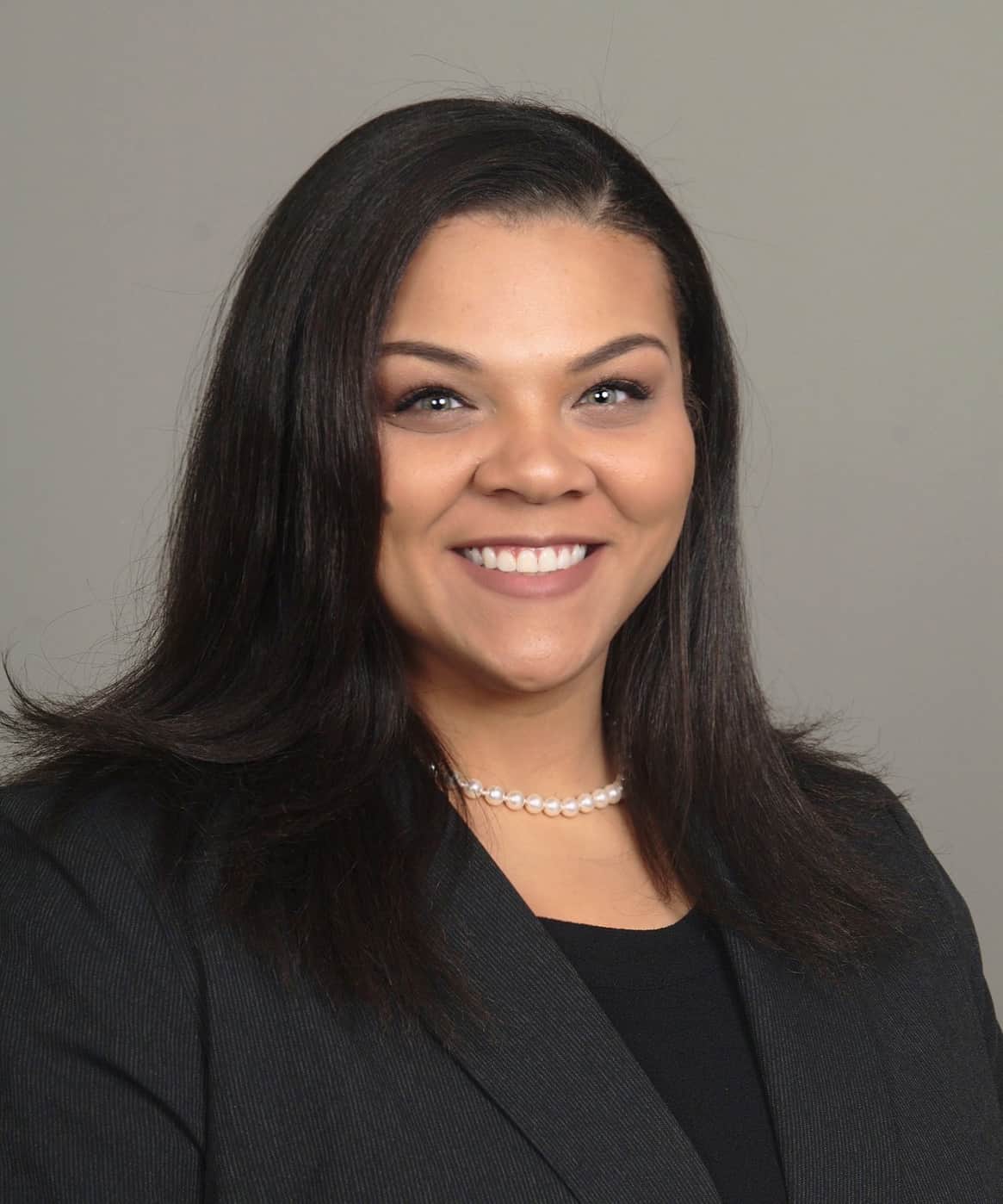
Dr. Sky Dainty was born into a multicultural family in New Orleans, LA before moving to Atlanta, GA as a young girl. Sky later travelled down to south Georgia where she graduated Magna cum laude from Valdosta State University in 2015; she received a Bachelor of Science in Biology from the College of Arts and Sciences as well as the University’s Honors College. Shortly after graduation, she moved to Nashville, TN. Here, she received her Doctorate of Medicine from Meharry Medical college where she focused her efforts on serving underserved populations throughout Middle Tennessee. She completed residency in the field of Obstetrics and Gynecology at Vanderbilt University. Sky relocated to Winston Salem, NC and is currently furthering her career as a Maternal Fetal Medicine clinical fellow at Wake Forest University. She plans to focus her career on improving access to women’s health in underserved areas in an effort to reduce mortality secondary to obstetric disease.
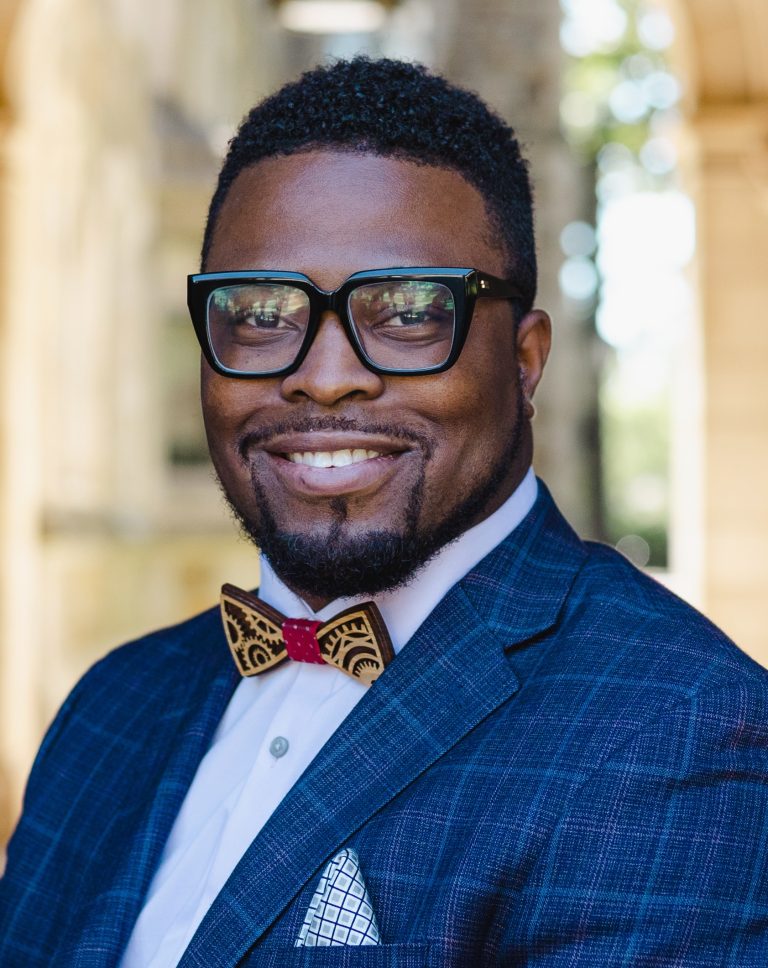
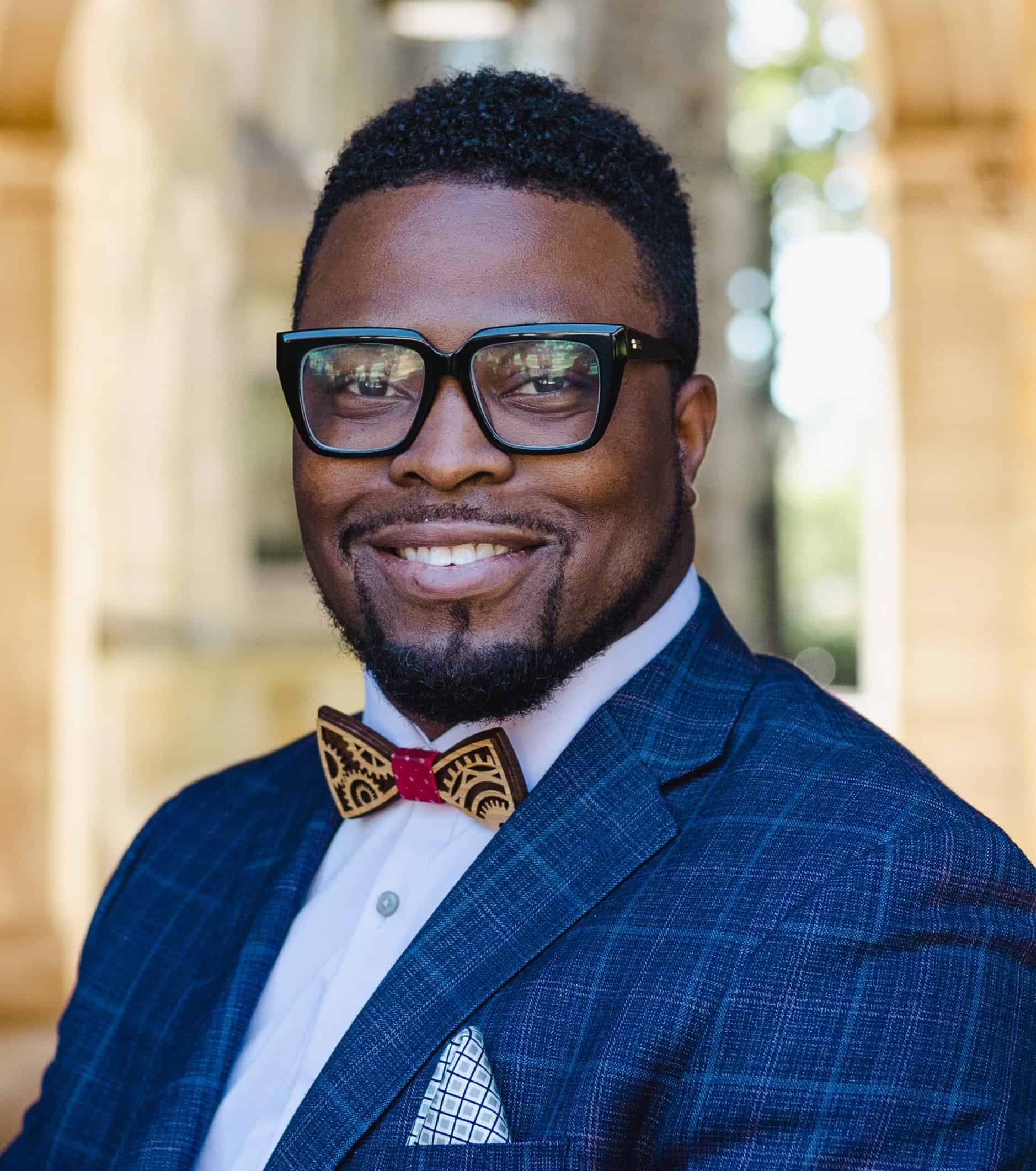
Dr. Okanlami (AΩA, University of X, 20XX) became the Organzational Representative for the AΩA Board of Directors in 2023.
Dr. Okanlami is the Director of Student Accessibility and Accommodation Services at the University of Michigan, where he oversees the office of Services for Students with Disabilities, two Testing Accommodation Centers, and the Adaptive Sports & Fitness Program. He is also an Assistant Professor of Family Medicine, Physical Medicine & Rehabilitation, and Urology at Michigan Medicine, and an Adjunct Assistant Professor of Orthopaedic Surgery at David Geffen School of Medicine at UCLA.
Dr. O” was born in Nigeria before immigrating to the US at a young age. He attended high school at Deerfield Academy and college at Stanford University where he also ran Track & Field, serving as captain his last two seasons and achieving Academic All American recognition.
He then earned his MD from the University of Michigan before matching into Orthopedic Surgery at Yale. At the beginning of his 3rd year he experienced a spinal cord injury, paralyzing him from the chest down. After two surgeries and intense rehabilitation, he was blessed with some return of motor function, and navigates the world as a proud wheelchair user, managing the other long term sequelae of an incomplete cervical spinal cord injury.
He went on to earn a Master’s in Engineering, Science, and Technology Entrepreneurship from The University of Notre Dame, and completed his Family Medicine Residency at Memorial Hospital in South Bend, Indiana. He served on the St. Joseph County Board of Health, appointed by then Mayor, now current Secretary of the Department of Transportation, Pete Buttigieg; and is on the board of the River City Challenged Athletes, a non-profit supporting the area adaptive sports teams. He was featured on Robin Robert’s Good Morning America Series “Thriver Thursday,” and has a catch phrase, “Disabusing DisabilityⓇ,” hoping to demonstrate that DISability doesn’t mean INability. He is a member of the Alpha Omega Alpha Medical Honors Society, received Michigan Medicine’s Distinguished Early Career Alumni Award in 2020, and was given the “A Teacher’s Teacher Award'' by the Academy of Medical Educators.
Nationally, he serves as the Disability Issues representative on the Steering Committee for the Group on Diversity and Inclusion at the Association of American Medical Colleges, sits on the National Medical Association’s Council on Medical Legislation, and was by the White House Office of Public Engagement to participate in the Health Equity Leaders Roundtable Series dedicated to exploring perspectives around Access to Care. He was appointed to the America250 Foundation Health and Wellness Advisory Council and speaks around the country on topics related to Diversity, Equity, and Inclusion, including, but not limited to creating a health system that is accessible to and inclusive of both patients and providers with disabilities, and providing reasonable and appropriate accommodations for students with disabilities in higher education. He has been featured on CBS News, PBS News Hour, and MSNBC’s Morning Joe, and is passionate about adaptive sports and fitness, striving to provide access to physical fitness and inclusive recreational and competitive sports for all.
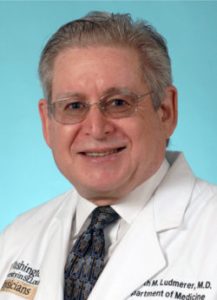
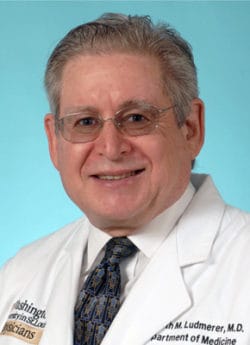
Dr. Ludmerer is the Professor of Medicine and the Mabel Dorn Reeder Distinguished Professor of the History of Medicine, School of Medicine, and Professor of History, Faculty of Arts and Sciences. His honors include election to the American Academy of Arts and Sciences, the Abraham Flexner Award for Distinguished Service to Medical Education of the Association of American Medical Colleges, and the Distinguished Alumnus Award of the Johns Hopkins University School of Medicine. He has been a member of The Pharos Editorial Board for more than 15 years.

